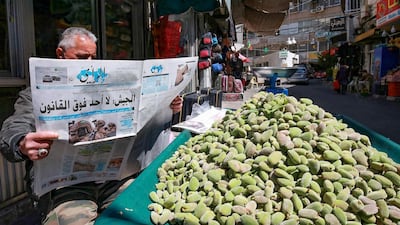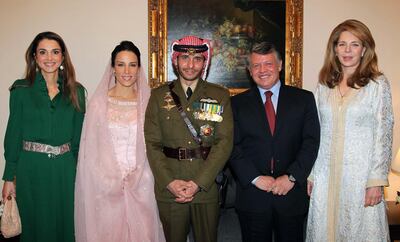On Saturday, Jordanian authorities made a number of arrests that included a former senior government figure and a member of the royal family, on what it said were security-related grounds. The Arab country’s many allies take a threat to its security seriously, and international partners including the US, the UAE, the GCC and the Arab League swiftly rallied round King Abdullah II.
The Hashemite kingdom’s stability in such a complex part of the region is a Middle East success story and a direct result of remarkable statesmanship over decades. The nation’s ruling family has built a country with a reputation for stability and a strong record of international mediation and building bridges. With their country situated between regional powers and Palestine, the late King Hussein and now King Abdullah have balanced the dynamics of a challenging area, even by the standards Middle East.
But current circumstances, particularly Covid-19, have hit the nation hard. Before the pandemic, Jordan was already struggling under the burden of an ongoing shortage of jobs, governance challenges and the strain of accommodating waves of refugees. Despite an effective early response to the virus, managing the pandemic for months on end took its toll. Protests erupted over strict lockdown measures in March. A recent scandal at a hospital that ran out of oxygen, resulting in the deaths of patients, only added to a fear among Jordanians that tough times were here to stay.
The country, which celebrates its centenary this year, has weathered crises before and the royal family has always steered the nation through difficult moments.
But politics in Jordan remains a delicate balancing act. At home, leaders oversee a sometimes fragile economy, with limited natural resources and the ever-present threat of water shortage. Jobs are scarce for the nation’s increasingly young workforce. The number of refugees as a proportion of the total population is more than 10 per cent, a figure that is second only to Lebanon internationally.
Abroad, Jordan is considered a steady and reliable partner for many countries, as was demonstrated by the prompt messages of support to King Abdullah and the wider nation during the past 24 hours. Its rulers have skilfully managed relations with neighbouring Israel, which is still on paper an adversary of parts of the Arab world. On its northern border, the country has had to contend with the effects Syria’s 10-year civil war. It was a central player in the defeat of ISIS, and still hosts 660,000 Syrian refugees. It oversees a number of sacred sites in Jerusalem, including Al Aqsa Mosque, the third holiest site in Islam.
These are diverse and long-standing burdens. The kingdom's endurance means that there can be no complacency from allies. The state of Jordan's security is crucial for the well-being of the region. As Dr Anwar Gargash, diplomatic adviser to the President, Sheikh Khalifa, tweeted on Sunday, "let us turn today and every day towards Jordan, its leadership and its people".



